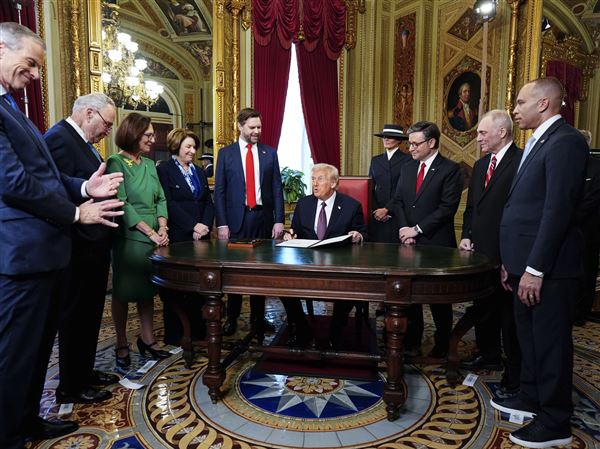A month ago, betting on the NCAA basketball tournament was top of mind for many of us as we participated in pools by wagering on who was going to win their brackets. Next month, the table turns as online gambling starts to disappear in the United States. Not that online gambling really happened here.
For the most part, it only looked like it was happening here. Most of the wagering was done using offshore gambling Web sites.
Sure, you could place a bet from the comfort of your own home or office. But you'd be placing your wager with a foreign entity operated in some strategic locale, such as Costa Rica, where gambling is legal.
Those offshore locations were selected specifically because the operators would be able to offer their gambling services without the fear of getting busted.
All they'd need to do is make sure that their customers -- especially those big spenders in the United States -- could find them. That's simple. All they needed to do was advertise.
Federal prosecutors are starting to come down hard on illegal gambling, with offshore betting emporiums being one of their key targets.
Since they couldn't go after the offshore operations directly, prosecutors started threatening to go after companies that aid and abet those offshore bookies. That could mean anybody who accepts advertising from offshore betting parlors, including the search engines.
Seemingly provoked, the major search engine companies have announced that they will stop running ads for offshore, online casinos. Without Google, Yahoo and Lycos to run the ads, business is likely to be slow for the offshore emporiums.
I don't have anything against gambling in general, as long as the gambler has the sense to keep his wagers within his limits. It's one of those so-called victimless crimes. But I applaud the search engines -- and any other company that similarly decides to decline the ads of these offshore scofflaws. According to the General Accounting Office, there are more than 1,800 Internet gambling operations, almost all of them outside the United States.
Since many of them treat the United States as their primary market, the only reason most of these guys go offshore is because they can't operate legally here. Yet they market their wares here as if it were legal.
They reap the benefit. They circumvent local, state and federal legal conventions. And they pull money out of the economy, much the same as illegal drug importers do.
The World Trade Organization doesn't see it the same way. The WTO, acting on a suit brought against the United States by Antigua and Barbuda, issued a decision March 24 that the United States cannot restrict offshore Internet gambling, despite the various federal, state and local laws.
The Caribbean island nation has good reason to fight. Tourism has always been the main engine of the Antiguan economy.
But after a series of hurricanes and the drop-off in travel after 9/11, tourism has taken a nose dive there, only to be replaced by Internet wagering as a growth industry.
Antigua and Barbuda authorities estimate that in a population of less than 70,000 people (the size of a typical suburb here), 3,000 of them -- more than 4 percent of the population -- are employed by online casinos, making the threats from our federal government a local economic problem.
Our government will appeal the WTO ruling. In the meantime, whether it's legal or not, the search engines and major media companies have done the right thing by creating policies in which they don't accept the ads.
First Published: April 22, 2004, 4:00 a.m.















